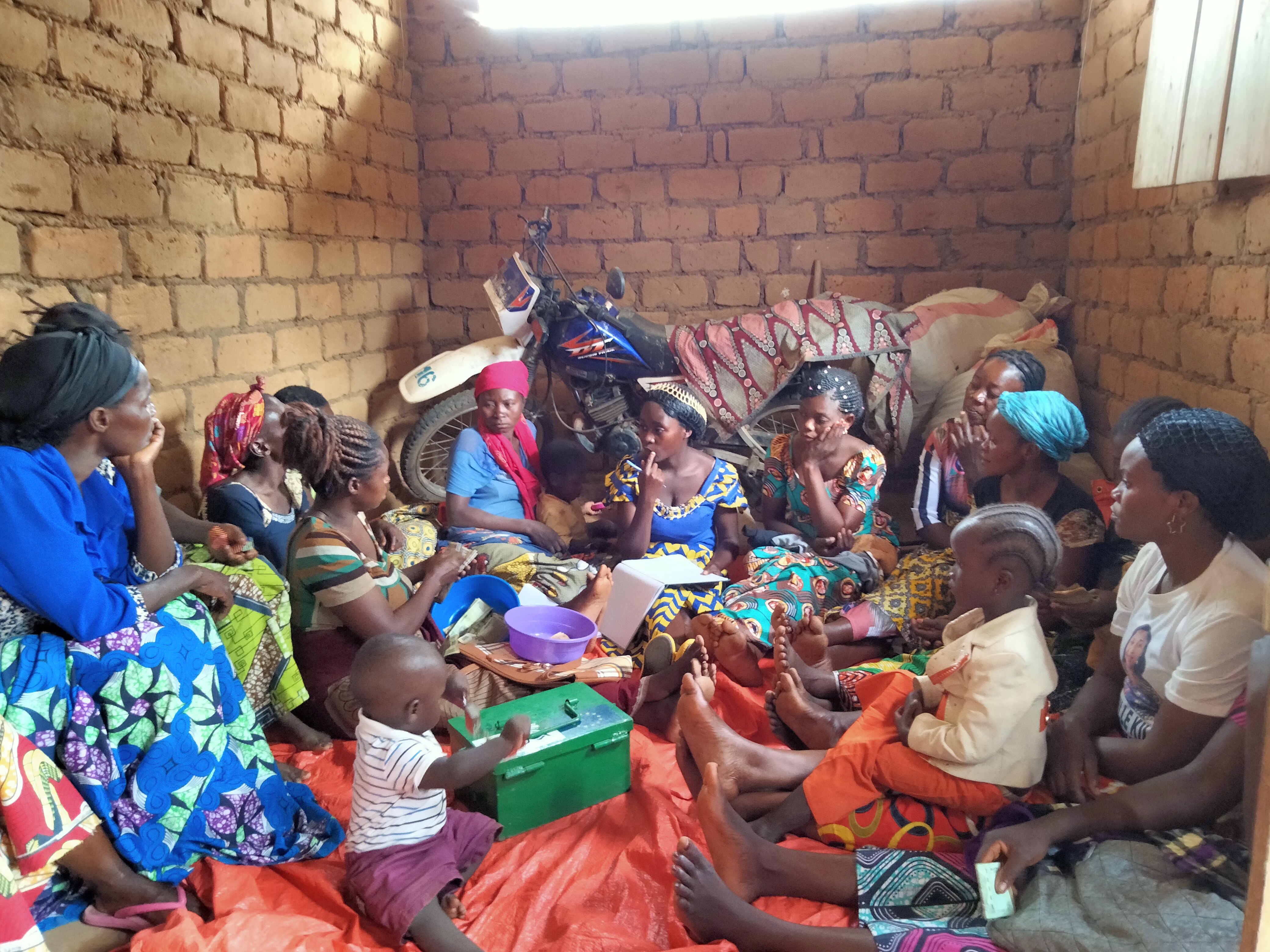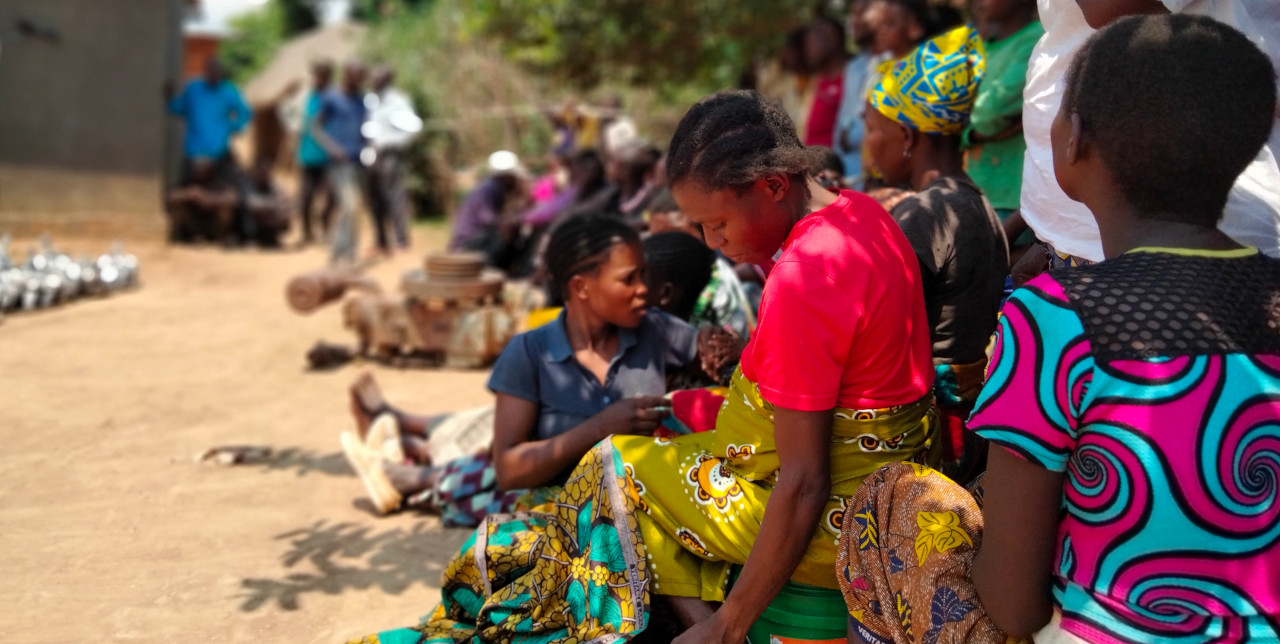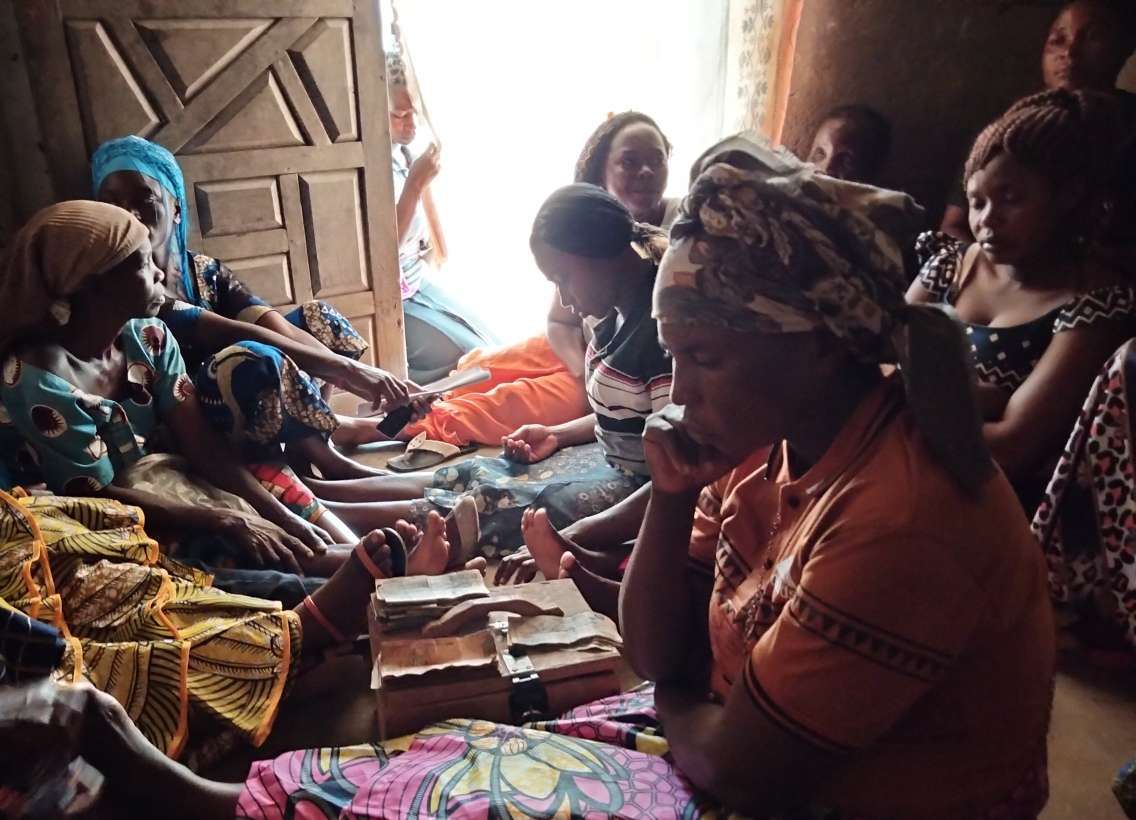24-08-2022 | di COOPI
DRC. Finances in the hands of women
From July 2020, COOPI - International Cooperation is operating in the Democratic Republic of Congo with the "Project to combat food and nutritional insecurity among the populations living in the Upemba National Park (PNU) in Mitwaba territory and the Bili-Mbomu Conservation Area (BMCA).", with the support of the European Union. COOPI's intervention aims to strengthen the economy in these rural areas by combating food insecurity and boosting sustainable production and agricultural productivity.
New economic opportunities are ensured through the activation of a system of savings and credit associations, called "AVEC" (Associations Villageoises d'Epargne et Crédit, Village Savings and Credit Associations), managed by groups of women living in the villages benefiting from the intervention. In this way, young women are able to improve their own position, encouraging the creation of income-generating activities through savings and investment. By doing so, they are able to secure long-term economic stability.
Thanks to this project, 34 AVEC groups have been established in the PNU territory and 20 AVEC groups in the Bili-Mbomu territory, each with an average of 15-20 members. Furthermore, in PNU, 20 AVEC were structured and organised into 4 coordination networks called "RAVEC" (Réseaux des Associations d'Epargne et Credit, Network of Village Savings and Credit Associations), which are responsible for centralising savings funds and granting loans to members, as well as for the possible obtaining of future external financing from microfinance institutions.
In these AVEC, members meet regularly to create a group money fund by accumulating their savings. These funds allow them to borrow money and return it with interest. At the end of an operational cycle of about six months, the total funds, including accrued interest, are divided among the members in proportion to the amount saved by each. AVEC thus allow members to save safely, take out small loans and obtain an emergency insurance.

The results achieved so far are encouraging: membership is constantly growing and members are dynamic and participative. AVEC partners have perceived an improvement in their standard of living, thanks to the strengthening of social capital and the increase in financial capacity to meet basic needs. The level of empowerment of the women beneficiaries of this activity also increased: by participating in the economic empowerment process, they saw their role improve at both the family and community levels.
Thanks to COOPI's technical support and financial support of USD 240 for each new AVEC created, the project has given many families the opportunity to increase their purchasing power on important items, such as school supplies for their children, and to invest in income-generating activities such as farming, goat and sheep breeding, small trade and handicrafts.
Photographs by: Jibril Jarrar




 Dem. Rep. of Congo
Dem. Rep. of Congo
